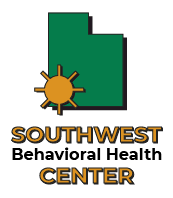After a Loss
You Are Not Alone
We wish to extend our deepest sympathy to you and your family on the loss of your loved one. We would like to share resources with you that other loss survivors have found helpful.
Loved Ones Suicide Survivors (LOSS)
St. George, UT
Where: every 3rd Tuesday of the month
Where: Saint George Regional Hospital
1380 E Medical Center Drive
St. George, UT 84790
Angels Landing Conference Room
Entrance 4, Lower Level
Time: 7:00 pm
More Info: Visit their website loss.care

From LOSS:
If someone you love has ended their own life…yours is forever changed. Don’t try to go it alone. There are lots of people who understand what you’re going through, who are ready, willing and able to help. Support groups provide one of the most valuable resources for suicide survivors. Here you can meet and talk with (or just listen to) people who are in your shoes. You can openly express your feelings and experiences with a group of caring individuals who will never judge you, rebuff you, or make you feel awkward. In addition to receiving help, you’ll find tremendous benefit in the help your experience will undoubtedly offer to others. We are LOSS – Loved Ones Suicide Survivors. We provide a peer led, FREE support group.
Please consider visiting utahsuicideprevention.org. In the “After a Suicide” section on the website, there are resources for you and your family that may be helpful to you right now or in the days to come:
- A free downloadable booklet “Surviving a Suicide Loss: A Resource and Healing Guide” from the American Foundation for Suicide Prevention.
- Information on Utah support groups for survivors of suicide loss.
You can also request a personal phone call or visit from another survivor of suicide loss, at no cost, by participating in the Survivor Outreach Program at afsp.org/find-support/ive-lost-someone. You are not alone. We hope you will find support and, in time, perhaps some understanding healing.
Sincerely,
Caring members of the Utah Suicide Prevention Coalition
If you find yourself in crisis or become worried about another, please to call the Suicide Prevention Lifeline: 1-800-273-TALK
Postvention
- Postvention is a term used to describe prevention measures implemented after a crisis or traumatic event to reduce the risk to those who have witnessed or been affected by the tragedy.
- Young people who experience the sudden death of a friend or relative are 65% more likely to attempt suicide if their loved one died by suicide than by natural causes, according to a new study in BMJ Open.Their absolute risk of attempting suicide is 1 in 10. http://www.psychcongress.com
- Suicide postvention strategies are designed to minimize contagions. Additional information – http://www.cdc.gov
- “Suicide in a SCHOOL COMMUNITY is tremendously sad, often unexpected, and can leave a school with many uncertainties about what to do next. Faced with students struggling to cope and a community struggling to respond, schools need reliable information, practical tools, and pragmatic guidance.The American Foundation for Suicide Prevention (AFSP) and the Suicide Prevention Resource Center (SPRC), two of the nation’s leading suicide prevention organizations, have collaborated to produce this toolkit to assist schools in the aftermath of a suicide (or other death) in the school community .” http://www.sprc.org/sites/default/files/migrate/
- library/AfteraSuicideToolkitforSchools.pdf
- School postvention efforts should restore the learning environment.
Talking about Suicide
Give accurate information about suicide
Suicide is a complicated behavior. It is not caused by a single event such as a bad grade, an argument with parents, or the breakup of a relationship.
In most cases, suicide is caused by an underlying mental disorder like depression or substance abuse. Mental disorders affect the way people feel and prevent them from thinking clearly and rationally. Having a mental disorder is nothing to be ashamed of, and help is available.
Talking about suicide in a calm, straight forward manner does not put ideas into an individual’s mind.
Address blaming and scapegoating
It is common to try to answer the question “why?” after a suicide death. Sometimes this turns into blaming others for the death.
Do not focus on the method or graphic details
Talking in graphic detail about the method can create images that are upsetting and can increase the risk of imitative behavior by vulnerable youth.
If asked, it is okay to give basic facts about the method, but don’t give graphic details or talk at length about it. The focus should be not on how someone killed themselves but rather on how to cope with feelings of sadness, loss, anger, etc.
Schools
REASONS WHY SCHOOLS SHOULD ADDRESS SUICIDE
While everyone who cares for and about young people should be concerned with youth suicide, schools have special reasons for taking action to prevent these tragedies:
1. Maintaining a safe school environment is part of a school’s overall mission. There is an implicit contract that schools have with parents to protect the safety of their children while they are in the school’s care. Fortunately, suicide prevention is consistent with many other efforts to protect student safety.
- Many activities designed to prevent violence, bullying, and the abuse of alcohol and other drugs may also reduce suicide risk among students.
- Programs that improve school climate and promote connectedness help reduce risk of suicide, violence, bullying, and substance abuse.
- Efforts to promote safe schools and adult caring also help protect against suicidal ideation and attempts among LGB youth.
- Some activities designed to prevent suicide and promote student mental health can reinforce the benefits of other student wellness programs
2. Students’ mental health can affect their academic performance. Depression and other mental health issues can interfere with the ability to learn and can affect academic performance. According to the 2009 Youth Risk Behavior Survey (CDC, 2010b):
- Approximately 1 of 2 high school students receiving grades of mostly Ds and Fs felt sad or hopeless. But only 1 of 5 students receiving mostly grades of A felt sad or hopeless.
- 1 out of 5 high school students receiving grades of mostly Ds and Fs attempted suicide. Comparatively, 1 out of 25 who receive mostly A grades attempted suicide.
3. A student suicide can significantly impact other students and the entire school community. Knowing what to do following a suicide is critical to helping students cope with the loss and prevent additional tragedies that may occur. Adolescents can be susceptible to suicide contagion (sometimes called the “copycat effect”). This may result in the relatively rare phenomenon of “suicide clusters” (unusually high numbers of suicides occurring in a small area and brief time period).
Help for You and Your Family
- Realize you are not alone
- Reach out for support. Please consider visiting utahsuicideprevention.org and access the “After a Suicide” section.
- Request a personal call or visit from another survivor of suicide loss, at no cost, by participating in the Survivor Outreach Program at afsp.org/find-support/ive-lost-someone
- Recognize your own feelings
- Be open and willing to engage in help-seeking behaviors
- Talk to others about your feelings. This will help relieve your stress and help you realize that your feelings are shared by other victims.
- Accept help from others in the spirit in which it is given. Wouldn’t you help them?
- Whenever possible, take time off and do something you enjoy
- Get enough rest
- Get as much physical activity as possible, such as running or walking
- Give someone a hug – touching is very important
Help for Your Community
- Listen when you can to those who are having problems
- Share your own feelings
- Be tolerant of the irritability and short tempers others show – everyone is stressed at this time
- Share information on assistance being offered and possible resources
Local grief support group
Southern Utah Suicide Prevention and Grief/Bereavement Providers
Caring Connections
Healing Conversations
Suicide Can Be Prevented
Reach4Hope
Interested in one of our Suicide Prevention classes? Fill out the form below to get class times and information.
If you are in a crisis, please call 911 or call or text the Lifeline at 988






